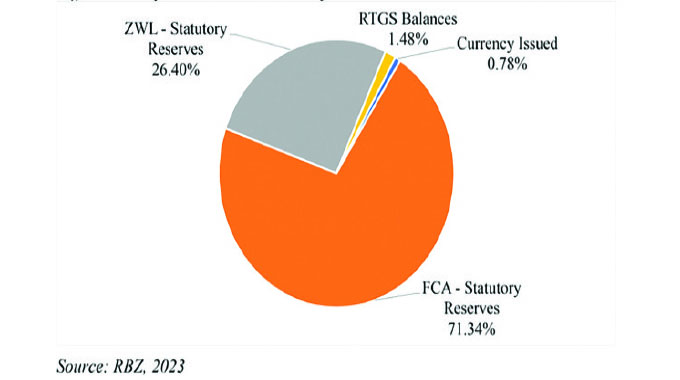The elusive American Dream
PHOENIX. – In January, Jose Patino learned through the mail that the federal government had approved him for a programme that protects young undocumented immigrants from deportation and issues them work permits. That night, Patino (24) and his family celebrated. “I was so excited,” said Patino, a Phoenix resident whose parents brought him to the US illegally from Mexico when he was six.
“We bought some ice cream and a small cake.”
But some of that excitement has worn off for Patino and many of the hundreds of thousands of young undocumented immigrants nationally who have been approved for the programme, which will be a year-old today.
Often, the initial excitement has been replaced by frustration and disappointment as undocumented immigrants approved for deferred action from deportation are forced to face the programme’s limitations and uncertain political future.
Deferred Action for Childhood Arrivals, launched by President Barack Obama’s administration, is aimed at undocumented immigrants between the ages of 15 and 30 who came to the US as children and who are in school or have graduated from high school. The Migration Policy Institute estimates there are 1,9 million undocumented immigrants who could be eligible for deferred action.
As of June 30, 557 412 undocumented immigrants nationally had applied for the programme, according to US Citizenship and Immigration Services. Of those, 400 562 had received approval, and 5 383 had been denied. The rest are either under review or the applications need to be resubmitted.
In Arizona, 19 149 had applied, and 15 009 have been approved, according to the agency. Those who have applied in Arizona represent about 58 percent of the estimated 33 000 undocumented immigrants in the state eligible for the programme, according to the Migration Policy Institute. For those who have been approved, the programme has opened some doors.
Receiving deferred action temporarily removes the chance of being deported for two years. Those who have been approved also receive work permits, meaning that for the first time, they can legally get a job. They are also eligible for driver’s licences and in-state college tuition in many states.
But many deferred-action recipients in Arizona and across the country are having a tough time getting jobs, even those like Patino with college degrees.
“Unfortunately, a lot of these DACA beneficiaries are starting a career path that is somewhat behind others,” said Adam Luna, director of Own the Dream, an organisation based in Washington, DC, that encourages people to apply for deferred action.
“But at least they can begin that path now, whereas they couldn’t before.”
In Arizona, he said, the state’s political climate has made it especially difficult for deferred-action recipients to get jobs. Arizona has refused to let deferred-action recipients get driver’s licences and also bars deferred-action recipients from paying in-state tuition at the state’s three universities.
“I think it’s more challenging, especially because of the driver’s licence issue. It really is limiting if it’s tough to get from point A to point B to get a job or to even go to an interview,” Luna said.
Job struggles
Patino’s work permit arrived in the mail the day after he learned he had been approved. He thought the permit meant he could finally get a job as an engineer. In May 2011, he graduated from Arizona State University with a degree in mechanical engineering. With no legal papers, he hadn’t been able to apply for engineering jobs. Instead, he worked part time as a construction labourer for a company that paid him under the table in cash.
After getting his work permit, Patino applied for jobs at eight or nine engineering firms. None panned out.
“A lot of them didn’t want to hire a temporary worker,” Patino said, noting that his work permit is only good for two years.
“That’s one of the fears they have.”
Patino believes his lack of previous work experience also hurt him. In college, he wasn’t able to apply for internships like other students because of his immigration status.
Many deferred-action recipients are experiencing similar frustrations, according to experts. They don’t have previous work experience, and they are facing a national unemployment rate of 23,7 percent for people ages 16-19 compared with 7,4 percent overall, according to the Bureau of Labour Statistics’ July data. For those 20-24, unemployment is 12,6 percent.
As a result, many have had to settle for low-paid entry-level jobs. Others haven’t been able to get jobs at all because employers don’t want to hire them.
“Some are maximising DACA. Others aren’t,” said Tom Wong, an assistant professor of political science at the University of California-San Diego.
Wong recently launched an online survey asking recipients how deferred action has affected their lives.
“It’s not that those who aren’t becoming lawyers and getting high-paid jobs aren’t capable of doing that. This two-year window may be the most inhibiting factor, because a two-year window in terms of a law program, or PhD programme or an employer seeing work authorisation that has to be renewed every two years is an onerous burden,” he said.
Phoenix immigration lawyer Jose Luis Penalosa has handled 160 cases for undocumented immigrants applying for deferred action.
One of his clients with a degree in Earth science and meteorology from ASU got a job at the Arizona Science Centre. Another, a student at Grand Canyon University, was hired at the Apple store.
But the majority, he said, “are getting first-time jobs, like fast food.”
Unable to drive
Dulce Matuz, president of the Arizona Dream Act Coalition, said some deferred-action recipients struggle to get jobs because many employers ask for a driver’s licence or state ID. In Arizona, they can’t get either. Her organisation is suing the state over Governor Jan Brewer’s refusal to let them get driver’s licences in Arizona.
Brewer’s stance is in the minority. Officials in 45 states have confirmed that undocumented immigrants who receive work permits through Obama’s deferred-action program are eligible for driver’s licences, according to the National Immigration Law Centre. Arizona and Nebraska are the only states that prohibit deferred-action recipients from getting driver’s licences.
As a result, many deferred-action recipients in Arizona only look for jobs close to home or end up taking a risk and driving illegally without a license, according to interviews with recipients and immigrant advocates.
Belen Sisa, a deferred action recipient, came to the US from Argentina when she was six with her mother. They overstayed their visitor’s visas and remained in the US illegally without papers. With her work permit, she was able to get a job as a receptionist for Gerald Burns, an immigration lawyer. She will start going to school full time this fall work full time to pay for tuition.
San Tan Valley area resident Belen Sisa (19) was approved for deferred action in January and got a job as a receptionist at a law firm in Phoenix, but without a driver’s licence, she couldn’t manage the 1 1/2-hour drive each way. So, she quit that job and took one as a receptionist for immigration lawyer Gerald Burns, whose Chandler office is closer to her home. However, getting to work without driving “is still a struggle”, she said.
But, Sisa said, deferred action has opened many opportunities for her. Her mother brought her to the United States on a visitor’s visa when she was six. They remained in the country illegally after the visa expired. Without legal papers, she said she was facing a dead-end after high school.
“My senior year of high school is when it really hit me that I wasn’t going to be able to do everything I wanted, like go to college and start a career and all of that,” Sisa said.
This fall, she plans to work full-time for Burns during the day and take classes full-time at night at a community college. Eventually she wants to get degrees in business and fashion design and open her own clothing store.
Deferred-action recipients like Sisa also face an uncertain future.
When he announced the programme in June, 2012, Obama characterised the deferred-action programme as a stop-gap measure until Congress passed legislation that would allow so-called “dreamers” to obtain legal status and eventually citizenship.
In June, the Senate passed a sweeping immigration reform Bill that would put “dreamers” on a fast track to permanent residency and citizenship. Under the Bill, they would apply for temporary legal status first, then for permanent residency five years after that.
As soon as they received their green cards, they would be able to apply for citizenship. But the Senate immigration Bill remains stalled in the GOP-controlled House, where Republicans are expected to lay out their own plan for tackling immigration reform in September.
But Attorney-General Tom Horne has filed a lawsuit in Superior Court arguing that the district, which includes 10 community colleges, is violating federal and state laws that prohibit undocumented immigrants from receiving public benefits. – USA Today.
“I feel kind of like I’m in limbo,” Chavarria said. The DACA programme “came at a time when we needed something. It gave us hope. But it has also pushed us to push for something bigger. We need some sort of Bill or legislation that would benefit not only us dreamers but also our parents.”
“I always dreamed of doing bigger things,” she said.
But many deferred-action recipients are finding that returning to school is also a challenge. The state’s three universities – Arizona State University, the University of Arizona and Northern Arizona University – have been instructed by the state Board of Regents not to accept work permits from DACA recipients for in-state tuition purposes. The Maricopa County Community College District has allowed students who receive work permits through the programme to pay in-state tuition.
But Attorney-General Tom Horne has filed a lawsuit in Superior Court arguing that the district, which includes 10 community colleges, is violating federal and state laws that prohibit undocumented immigrants from receiving public benefits.
Phoenix College student Carla Chavarria (20) is worried she won’t be able to afford college if Horne’s lawsuit is successful. Carla Chavarria works on her laptop at Fair Trade Cafe in Phoenix. Chavarria, is an undocumented immigrant who was able to go back to college after receiving a work permit and two-year protection from deportation under a programme President Barack Obama started a year ago. – USA Today.
(Photo: Cheryl Evans, The Arizona Republic)
Chavarria, an undocumented immigrant from Mexico who crossed the border illegally with her mother when she was seven, graduated from high school in May 2010. She studied at Scottsdale Community College for a year but had to drop out because she couldn’t afford to pay out-of-state tuition.
She was approved for deferred action in January, making her eligible for in-state tuition at Maricopa County Community Colleges. This summer she took an English class at Phoenix College and plans to attend full-time in the fall.
Chavarria uses the money she earns from her graphic design business to pay for her tuition. Her goal is to get her associate’s degree in marketing so she can transfer to the Art Center College of Design in Pasadena, Calif.
But she said being forced to pay out-of state tuition would probably put college out of reach again for her.
“I wouldn’t go to school in Arizona,” she said “It probably would be too high of a cost for me.
Deferred-action recipients like Chavarria also face an uncertain future.
When he announced the programme in June, 2012, Obama characterised the deferred-action programme as a stop-gap measure until Congress passed legislation that would allow so-called “dreamers” to obtain legal status and eventually citizenship.
In June, the Senate passed a sweeping immigration reform bill that would put “dreamers” on a fast track to permanent residency and citizenship. Under the Bill, they would apply for temporary legal status first, then for permanent residency five years after that. As soon as they received their green cards, they would be able to apply for citizenship. But the Senate immigration Bill remains stalled in the GOP-controlled House, where Republicans are expected to lay out their own plan for tackling immigration reform in September.
“I feel kind of like I’m in limbo,” Chavarria said. The DACA programme “came at a time when we needed something. It gave us hope. But it has also pushed us to push for something bigger. We need some sort of Bill or legislation that would benefit not only us dreamers but also our parents.”






Comments